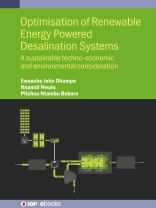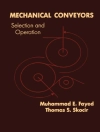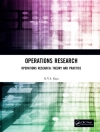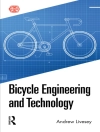Energy and water are both essential commodities. The abundance of these resources is yet to transcend into adequate use, mainly because of infrastructural deficit, efficient management and utilization of both resources and exiting infrastructures. It is for this reason that international organizations like the United Nations propose and pursue sustainable development goals 6 and 7 which recommended ‘clean water and sanitation’ and ‘Affordable and clean energy for all’ respectively. To achieve a more comprehensive solution to these multifaceted complex problems, a roadmap with holistic techniques is needed.
The energy-water nexus concept describes the interconnection between both resources with the aim of maximizing synergy and addressing trade-offs between the two. This mutual relationship between energy and water could be two ways, either water utilization for energy generation or energy expended for water purification. It could also be the case of both energy and water interdependence for co-generation. In any case, the energy-water nexus is beneficial for domestic utilization, industrial use and for agricultural efficiency through irrigation for food production. The optimal design and utilization of this nexus for techno-economic and environmental sustainability is of high essence.
Key Features:
- Provides a pathway towards effective and efficient utilization of the nexus of critical resources like energy, water, food and environment and explores relative advantages, synergies and trade-offs.
- Seeks to tie the Energy-Water nexus to related aspects of optimization, control and operation of emerging technologies.
- Provides a detailed analysis of Energy-Water nexus control and optimization tools, current trends, and outlook.
- Serves as a roadmap to the delivery of adequate, affordable, reliable, sustainable clean energy and water by developing mathematical models of optimal energy mix.
‘The book is a useful reference for researchers in related areas. It may also be useful for university courses on related subjects at senior undergraduate or postgraduate levels.’
Nihal Kularatna, University of Waikato, New Zealand 2025 IEEE Electrical Insulation Magazine
Mục lục
Preface
Acknowledgments
Author biographies
Part I Background information
1 General introduction
1.1 Introduction
1.1.1 Background
1.1.2 Freshwater accessibility
1.1.3 Energy accessibility
1.1.4 Merit of the nexus
1.2 Summary
References
Part II Understanding water treatment techniques
2 Water treatment techniques
2.1 Wastewater treatment and water reuse technology
2.1.1 Comparative benefits of wastewater treatment techniques
2.2 Desalination: overview, methods, and configurations
2.2.1 Humidification-dehumidification technique
2.2.2 Multi-stage flash technique
2.2.3 Vapour compressor distillation technique
2.2.4 Multi-effect distillation
2.2.5 Electrodialysis and electrodialysis reversal methods
2.2.6 Capacitive deionisation method technique
2.2.7 Membrane distillation technique
2.2.8 Reverse osmosis technique
2.2.9 Forward osmosis technique
2.2.10 Nanofiltration
2.2.11 Freezing desalination
2.3 Summary
References
Part III Optimisation of the desalination system with renewable energy sources
3 Potential of renewable energy sources for desalination and water reuse
3.1 Introduction
3.2 Geothermal energy potential for desalination
3.3 Ocean energy potential for desalination
3.3.1 Ocean thermal energy
3.3.2 Ocean mechanical energy (wave, tidal, and current energy)
3.3.3 Ocean chemical energy (salinity gradient energy)
3.4 Wind energy potential for desalination
3.5 Solar energy potential for desalination
3.5.1 Solar thermal-powered desalination
3.5.2 PV-powered desalination
3.6 Hybrid RES for desalination
3.7 Summary
References
4 Modelling and simulation in energy and water systems: advancements and challenges
4.1 Introduction
4.1.1 Energy modelling and simulation
4.1.2 Water modelling and simulation
4.1.3 Integrated energy-water modelling and simulation
4.2 Optimisation of renewable energy source—reverse osmosis desalination system
4.2.1 System sizing optimisation
4.2.2 Operational optimisation and control
4.3 Research output and trend
4.3.1 Economic feasibility of renewable energy source—integrated desalination system
4.3.2 Modelling and simulation of renewable energy source—power RO desalination system
4.3.3 Design and exergy analysis of solar-powered desalination unit
4.3.4 Optimisation of PV-RO technology
4.4 Summary
References
Part IV Techno-economic and environmental consideration
5 Demand-side management: a tool for energy-water efficient management
5.1 Introduction
5.2 Understanding DSM
5.2.1 Definition and concepts of DSM
5.2.2 Types of DR programmes
5.3 Importance and benefits of DSM in energy and water systems
5.3.1 Role of DSM in sustainable resource management
5.4 DSM in energy systems
5.4.1 Energy efficiency initiatives and programmes
5.4.2 Peak load shifting strategies and To U pricing
5.4.3 DR and load curtailment techniques
5.4.4 Integrating renewable energy and DSM
5.4.5 Case studies of successful implementation of DSM in energy systems
5.5 DSM in water systems
5.5.1 Demand management strategies in the water industry
5.5.2 Water conservation programmes and water-efficient technologies
5.5.3 Sustainable agricultural practises and water use
5.5.4 Smart water metres and consumer engagement
5.5.5 Water pricing policies and water use efficiency
5.5.6 Case studies of effective DSM in water systems
5.6 The energy-water nexus: interdependencies and challenges
5.6.1 Understanding the complex relationship between energy and water
5.6.2 Water use in energy production: power generation, fossil fuels, and hydropower
5.6.3 Energy use in water systems: water extraction, treatment, and distribution
5.6.4 Impacts of climate change on the energy-water nexus
5.6.5 Policy and management challenges in addressing the nexus
5.7 Integrated approaches to energy-water nexus management
5.7.1 Coordinated strategies for sustainable resource management
5.7.2 Synergies and trade-offs in DSM in energy and water sectors
5.7.3 Case studies of integrated approaches to the energy-water nexus
5.8 Future trends and opportunities
5.8.1 Emerging technologies and innovations in DSM
5.8.2 Policy recommendations for energy-water nexus DSM
5.8.3 Advancing research and knowledge gaps
5.9 Summary
References
6 Techno-economic evaluation of desalination systems
6.1 Introduction
6.2 The effect of DR on the energy mix of the desalination system
6.2.1 Energy supply and demand modelling
6.2.2 Desalination plant energy demand
6.2.3 DR model
6.2.4 Optimisation model
6.2.5 Case study
6.2.6 Results and discussion
6.3 Effect emission cost on water desalination
6.3.1 Case study 2
6.3.2 The economic impact of global warming
6.3.3 Optimisation model
6.4 Results and discussion
6.4.1 Sensitivity analysis
6.5 Summary
References
7 Optimal design and evaluation of combined desalination and brine treatment units
7.1 Introduction
7.1.1 Environmental impacts and management of brine
7.2 Case study 1: hybridisation of RO-ED-CRY
7.2.1 System architecture
7.2.2 Energy source model
7.2.3 Desalination and brine management energy demand model
7.2.4 Optimisation problem formulation
7.2.5 Results and discussion
7.3 Summary
7.4 Case study 2: hybrid PRO-RO desalination system using brine for salinity gradient energy production
7.4.1 System architecture
7.4.2 System cost model
7.4.3 Salinity gradient energy
7.4.4 Optimisation problem formulation
7.4.5 Results and discussion
7.5 Summary
References
8 Conclusion
8.1 Conclusion
8.2 Future outlook
8.3 Challenges faced by energy-water system optimisation
8.4 Policy framework for a sustainable energy-water nexus
References
Giới thiệu về tác giả
Ewaoche John Okampo, Ph.D. is currently a postdoctoral research fellow at the University of Johannesburg. He obtains a Ph D degree in Electrical and Electronic Engineering from the University of Johannesburg, South Africa (2021). He holds a Bachelor of Engineering degree (B. Eng.) and Master of Engineering degree (M. Eng.) in Electrical and Electronic Engineering from Caritas University, Enugu (2010) and University of Port Harcourt, Nigeria (2017) respectively. He also holds a Post Graduate Diploma in Education (PGDE) from National Open University of Nigeria (2016) and on course to complete a second Ph D in Operations Management. His research interests include engineering education, energy-water nexus, renewable energy systems, systems modelling and simulation, application of FACTS devices and artificial/computational intelligence for power system optimization and reliability. In his “Just-starting” research journey, he has published twelve (12) papers of which eight (8) are indexed journals, and has served as reviewer for many high-rated journals. Dr. Ewaoche John Okampo is a Professional Engineer registered with the Engineering Council of South Africa (ECSA), a Member of the Institute of Electrical and Electronics Engineers (MIEEE), a Member of the South African Institute of Electrical Engineers (MSAIEE).
Nnamdi Nwulu is a Professor of Electrical Engineering and the Director of the Centre for Cyber Physical Food, Energy & Water Systems (CCP-FEWS) at the University of Johannesburg. His research interests have focused on the application of digital technologies, mathematical optimization techniques and machine learning algorithms in food, energy and water systems. This research focus has produced five (5) books and over seventy (70) indexed journal publications winning him the 2021 NRF Research Excellence Award for Early Career/Emerging Researchers in the Engineering/Technology Category. He was also a 2020/2021 TW Kambule-NSTF-South32 Award finalist in the category of Emerging Researcher and also won the 2020 UJ Vice Chancellor’s most promising young researcher award. He is a Member of the South African Young Academy of Science (SAYAS).
Prof. Nwulu is a Professional Engineer registered with the Engineering Council of South Africa (ECSA), a Senior Member of the Institute of Electrical and Electronics Engineers (SMIEEE), a Senior Member of the South African Institute of Electrical Engineers (SMSAIEE) and a Y-rated Researcher by the National Research Foundation of South Africa.
Prof. Nwulu is the Editor-in-Chief of the Journal of Digital Food Energy and Water Systems (JD-FEWS), Associate Editor of the IET Renewable Power Generation (IET-RPG) and the African Journal of Science, Technology, Innovation and Development (AJSTID).
Pitshou Ntambu Bokoro, Ph.D. is Associate Professor with the Department of Electrical and Electronic Engineering Technology, University of Johannesburg, South Africa. He holds Senior Membership with the South African Institute of Electrical Engineers (SMSAIEE) as well as with the Institute of Electrical and Electronics Engineers (SMIEEE). He obtained a bachelor’s degree in electrical engineering from the Durban University of Technology, a Master‘s degree in Electrical Engineering from the University of Johannesburg, and a Ph.D. degree from the University of the Witwatersrand, Johannesburg. He has published over 100 research papers (which include over 45 journal articles and 65 conference papers) in high-quality journals and peer-reviewed conference proceedings. He authored a couple of book chapters in reputed books published by IGI-Global and IET. He serves as a specialist editor in Energy and Power Systems for the SAIEE Africa Research Journal (ARJ).
He has also performed several reviews for various prestigious journals, including IEEE Transactions on Power Delivery, IEEE Access, International Journal of Electrical Power and Energy systems (IJEPES/Elsevier), Advances in Electrical and Electronic Engineering (AEEE), International Transactions on Electrical Energy Systems (ITEES), Materials Today Proceedings (Elsevier), Journal of Engineering Design and Technology (JEDT), Engineering Failure Analysis (Elsevier), Power Engineering Letters, Measurement (Elsevier), Journal of Electrical Engineering and Technology (EETE), Journal of Energy in Southern Africa (JESA), Electric Power Systems Research Journal, Electronics MDPI, Energies MDPI, Microelectronics Reliability, Sustainability MDPI. He has supervised to completion over 18 postgraduate students (which include master’s and doctoral students). His major research interests include renewable energy systems, power systems, power system reliability, distributed generation, surge arresters, insulation and dielectrics, power quality, condition monitoring, microgrids, internet of things and virtual sensing applications.












